12 essential tips for small gardens: professional gardeners reveal how to improve a petite plot
Maximize the impact of even the smallest backyard with these small garden tips and tricks from experts in gardening
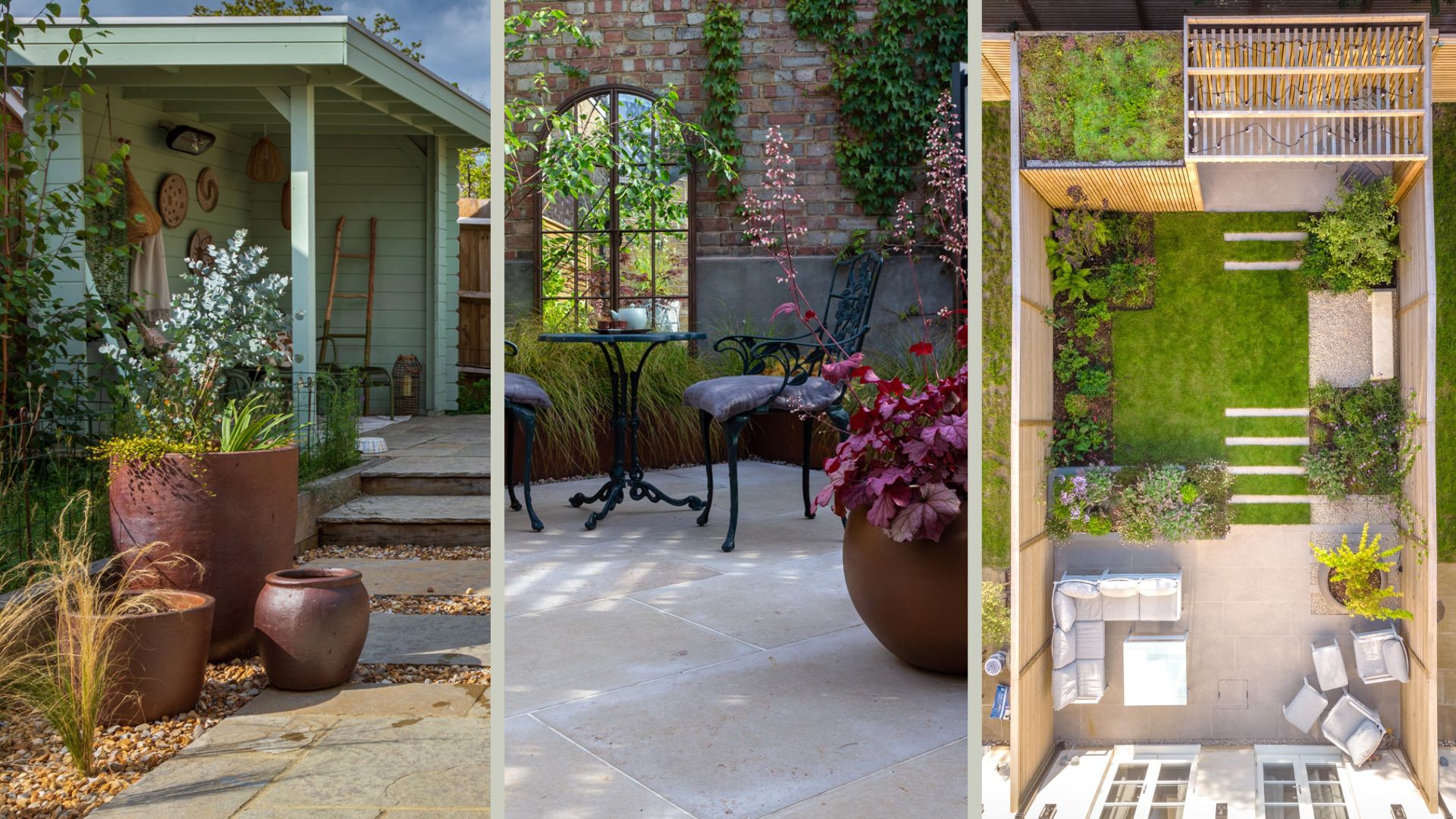

Don't let a small plot leave you feeling limited because when it comes to maximizing small backyards all you need is the right small garden tips to create an outdoor space bursting with potential.
A little can go a long way when it comes to making the most of a small garden, much like when looking at how to make your house look expensive from the outside.
And what could be better than professional gardeners and landscape designers sharing their best gardening tips and advice on what every home with a small garden should consider doing to maximize the potential of their plot?
Ranging from elevating your best plants to creating impactful focal points there's a small garden tip to suit all compact spaces to make your outdoor space all the more valuable.
12 expert small garden tips to maximize space and style
So often the smaller the garden the more daunting it can feel because of the overwhelming expectation to make the most of every inch by trying to incorporate every single element of garden design. However, resisting the urge to overcomplicate things is the key to making your small garden a highly usable space.
With these expert small garden tips, many of whom are members of the Society of Garden Designers you will have your small garden flourishing in no time.
1. Don't overwhelm the space
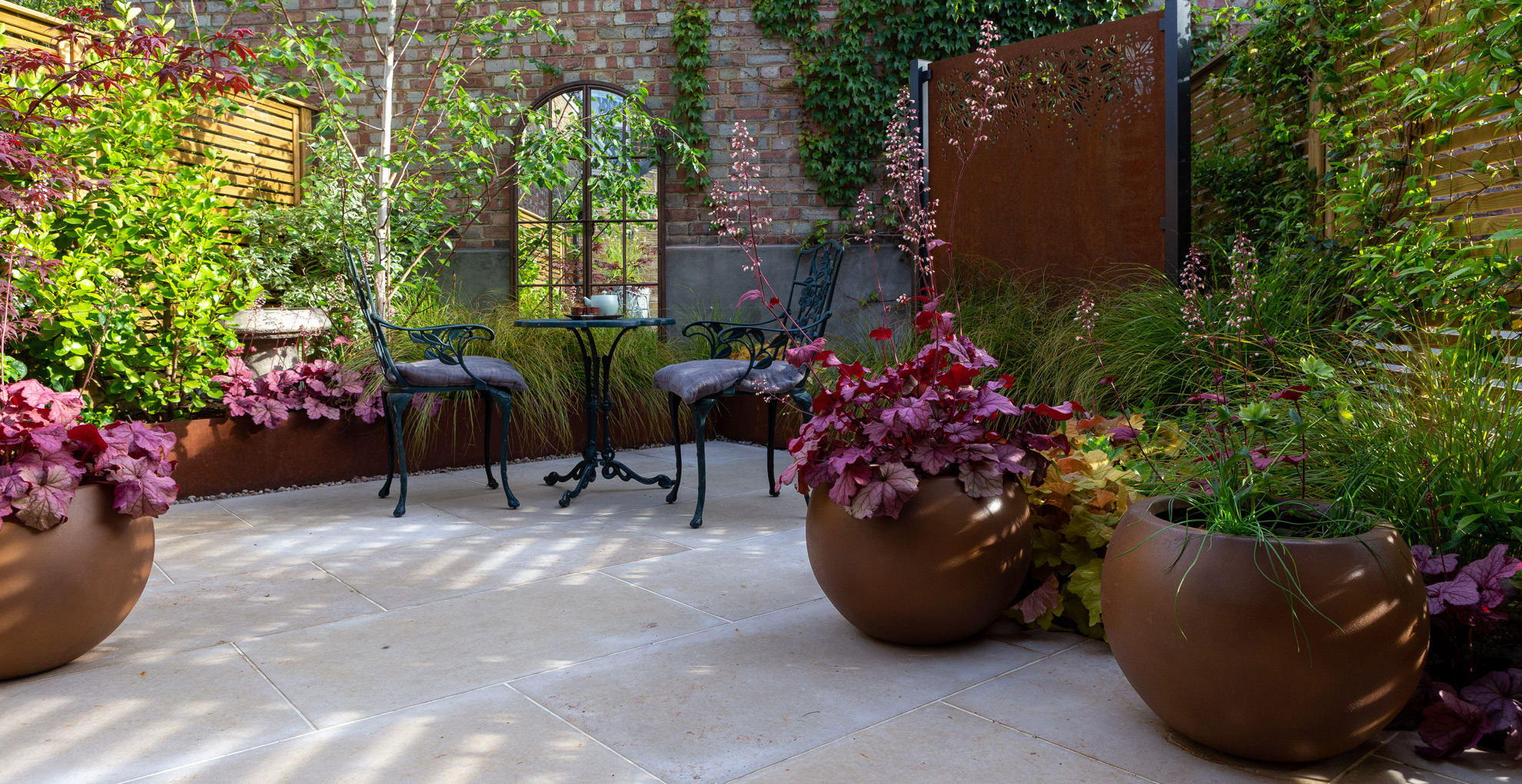
Small garden design by Sarah Kay
The same theory applies to a small outdoor space as it does to organizing a small space indoors, keeping clutter to a minimum. Keep all your tools and garden essentials out of sight in a compact storage solution to avoid them from overwhelming the already limited space.
Sign up for the woman&home newsletter
Sign up to our free daily email for the latest royal and entertainment news, interesting opinion, expert advice on styling and beauty trends, and no-nonsense guides to the health and wellness questions you want answered.
"When working with a small garden area, it’s important to keep it simple," advises Sarah Kay, professional gardener and founder of Sarah Kay Garden Design. Focus on a few essential elements and don’t try to cram in too much.
"Being ‘orderly’ will amp up the feeling of open space in smaller gardens," says Ben Hilton, horticultural expert and founder of The Yard and Garden.
2. Plant with full size growth in mind
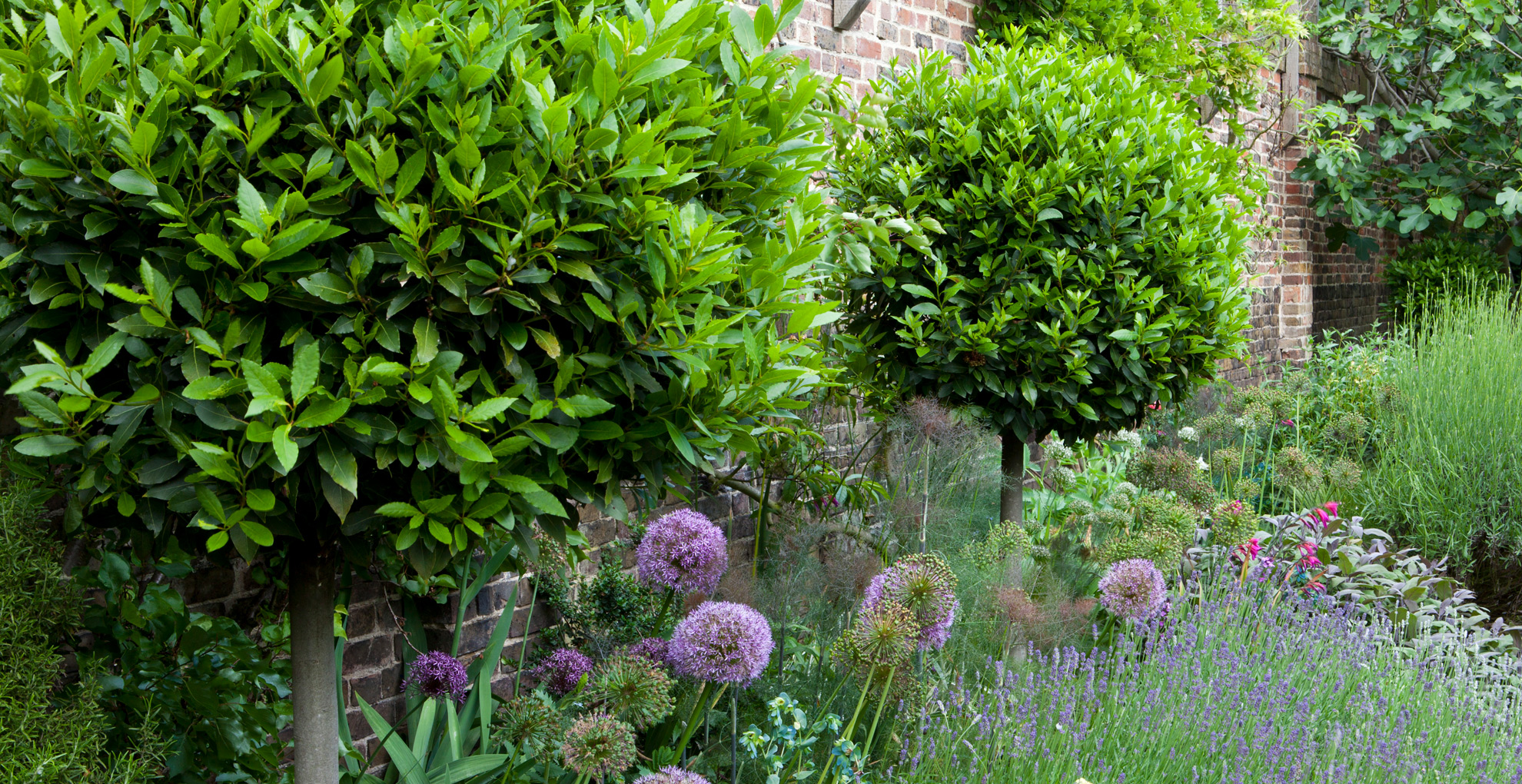
Of course, any keen gardener wants their plants to grow but the key element to remember for any small garden is how big each plant variety may reach in size. Don't simply choose the best cottage garden plants if they are likely to overtake the space once fully grown, which is easily done if you don't select the variety with care.
"Don’t use plants that will outgrow their space," advises Janet Loughrey of Garden Design, garden writer and expert with 25 years of planting knowledge. "Select dwarf varieties that will stay smaller."
"When it comes to selecting plants for a small garden, it's important to choose plants that complement the space," says Ben. "Go for tall, slim plants that don't take up too much horizontal space. Plants with delicate, airy foliage will also help to create a sense of space. I would suggest something like Stipa grasses, Libertia Chilensis, or Heuchera 'Paris' as a shorter option."
3. Create zones and journeys
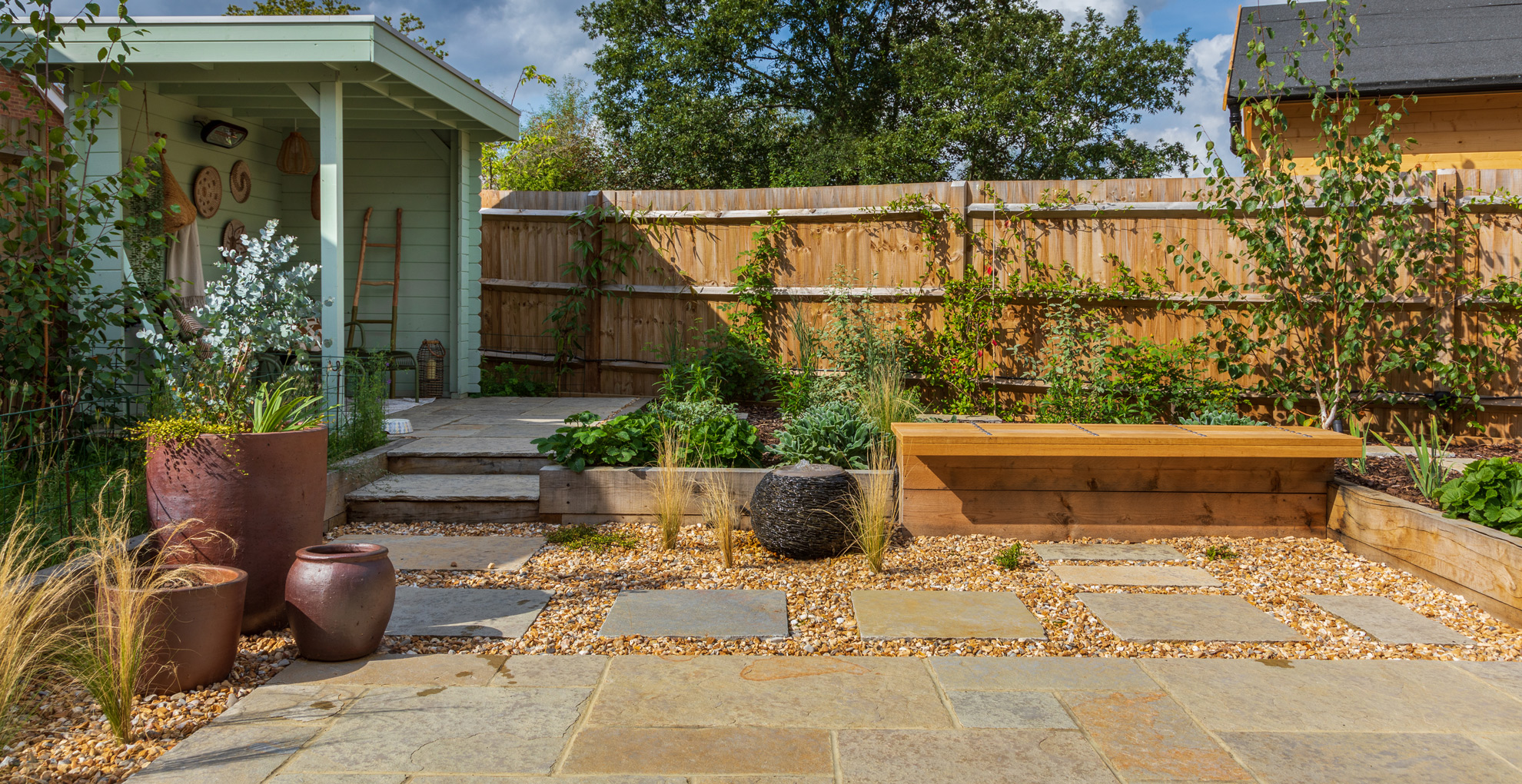
Small garden design by Chiltern Garden Design
Believe it or not, it can help to make a small space feel bigger and more purposeful when broken into zones.
"Create journeys within the garden and around it, to ensure you explore the whole length or breadth of the space rather than just sitting outside the patio doors," advises Sam Proctor MSGD, garden designer at Chiltern Garden Design. "It helps if you can’t quite see where the path goes, drawing you into the garden to explore further."
"Consider creating a dining area, a relaxation area, and a planting area," suggests Ben. "For even smaller spaces, create zones with different planting or hardscaping. Different colored or textured paths or pavers are a great way of expanding the floor space. By creating distinct zones, you'll avoid the feeling of clutter and create the impression of a larger garden."
4. Level up
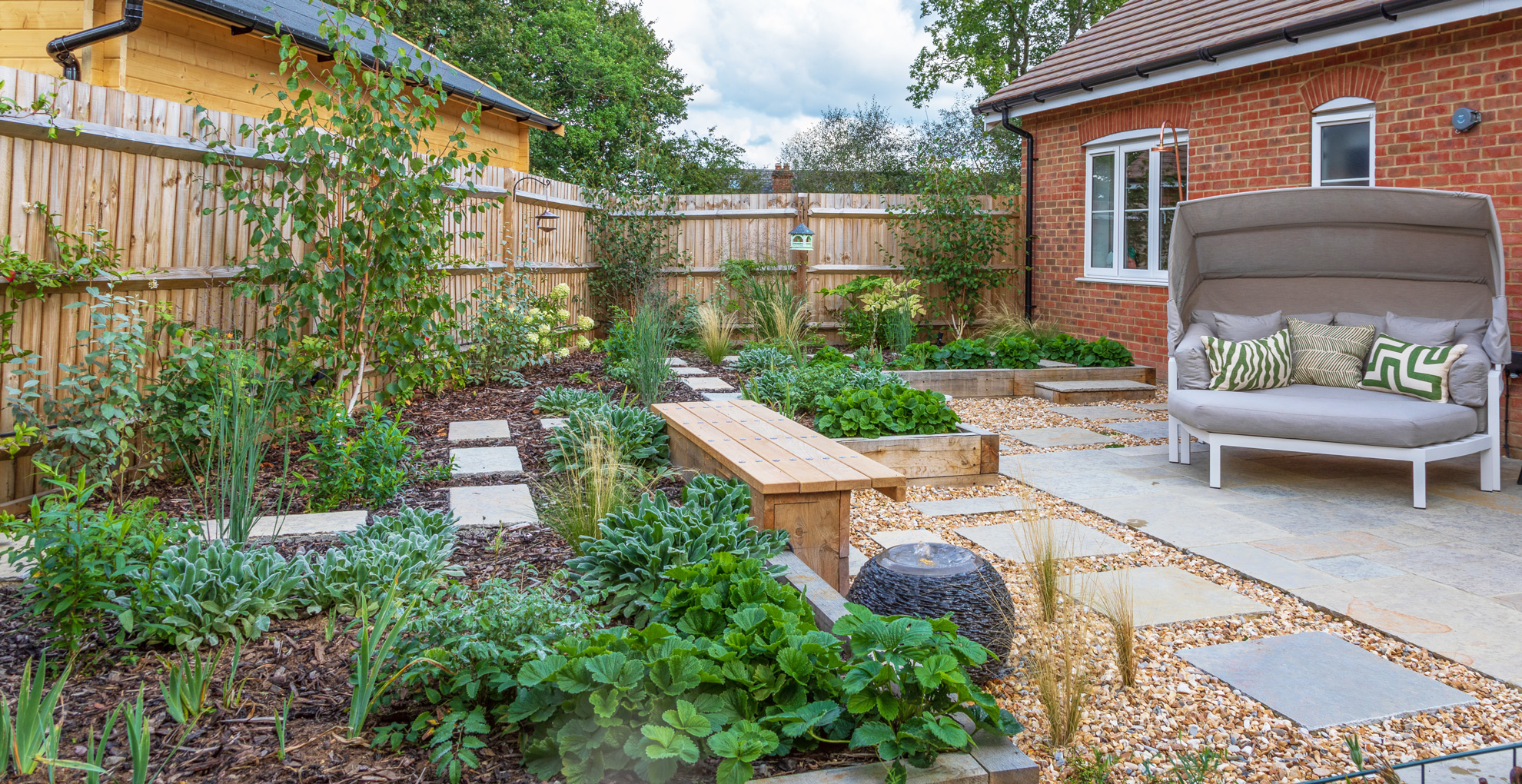
Consider elevating your small garden plot, quite literally, to create a greater sense of perspective and depth. Even a small step or raised bedding area can help to make the space feel more bountiful.
"A change of levels creates interest and a sense of journeying, even if it’s just a step or two up or down to a new area," explains Sam.
5. Welcome focal aspects
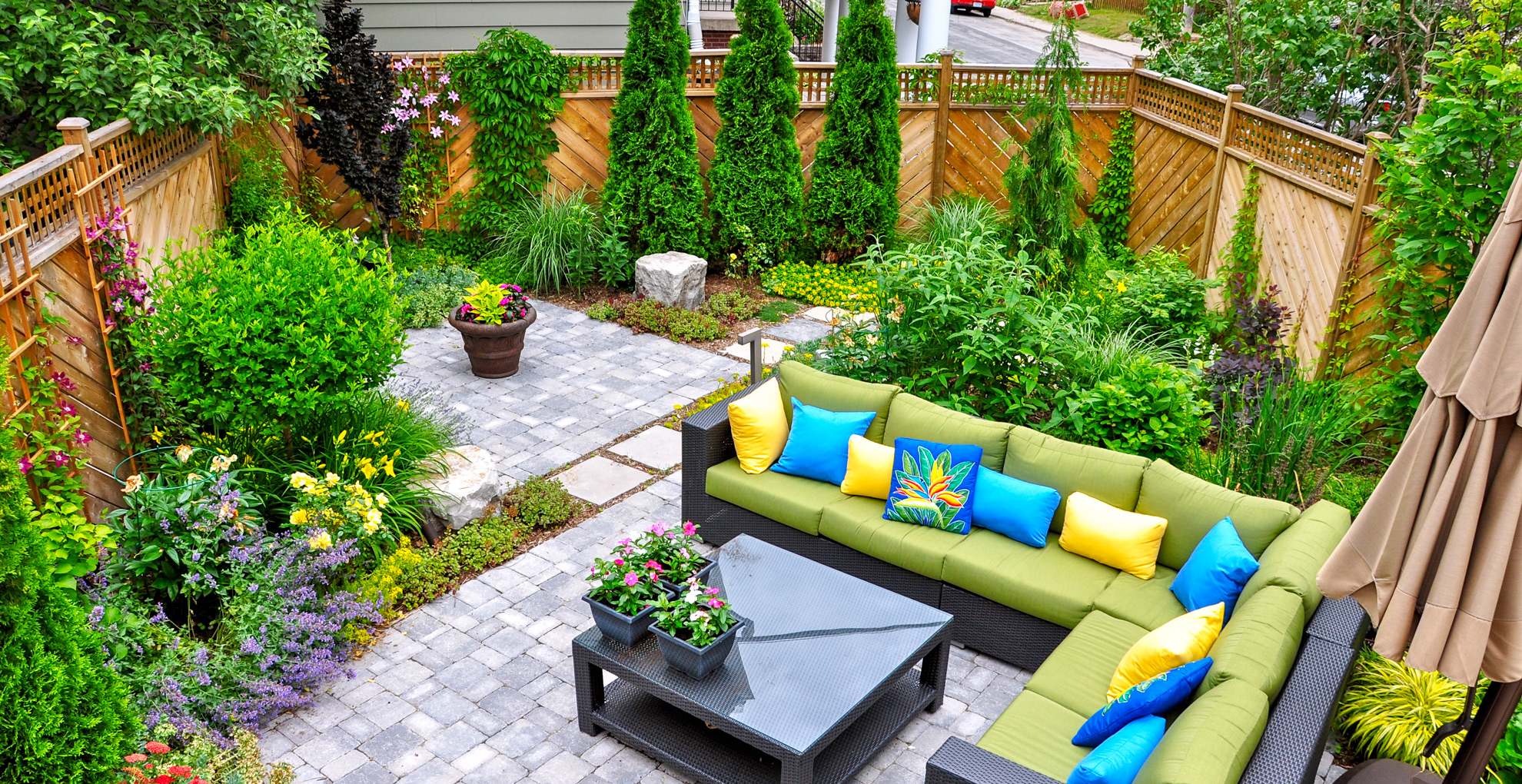
To make a small space count it's important to anchor the eye to specific focal points to give the plot more prominence.
"Often small gardens are overlooked by surrounding buildings so the interest needs to be within the garden itself," says Sarah. "Use focal points such as key architectural plants, screens, or ornaments to attract attention within the garden, whilst disguising poor views with trees and shrubs."
6. Utilize vertical growing opportunities
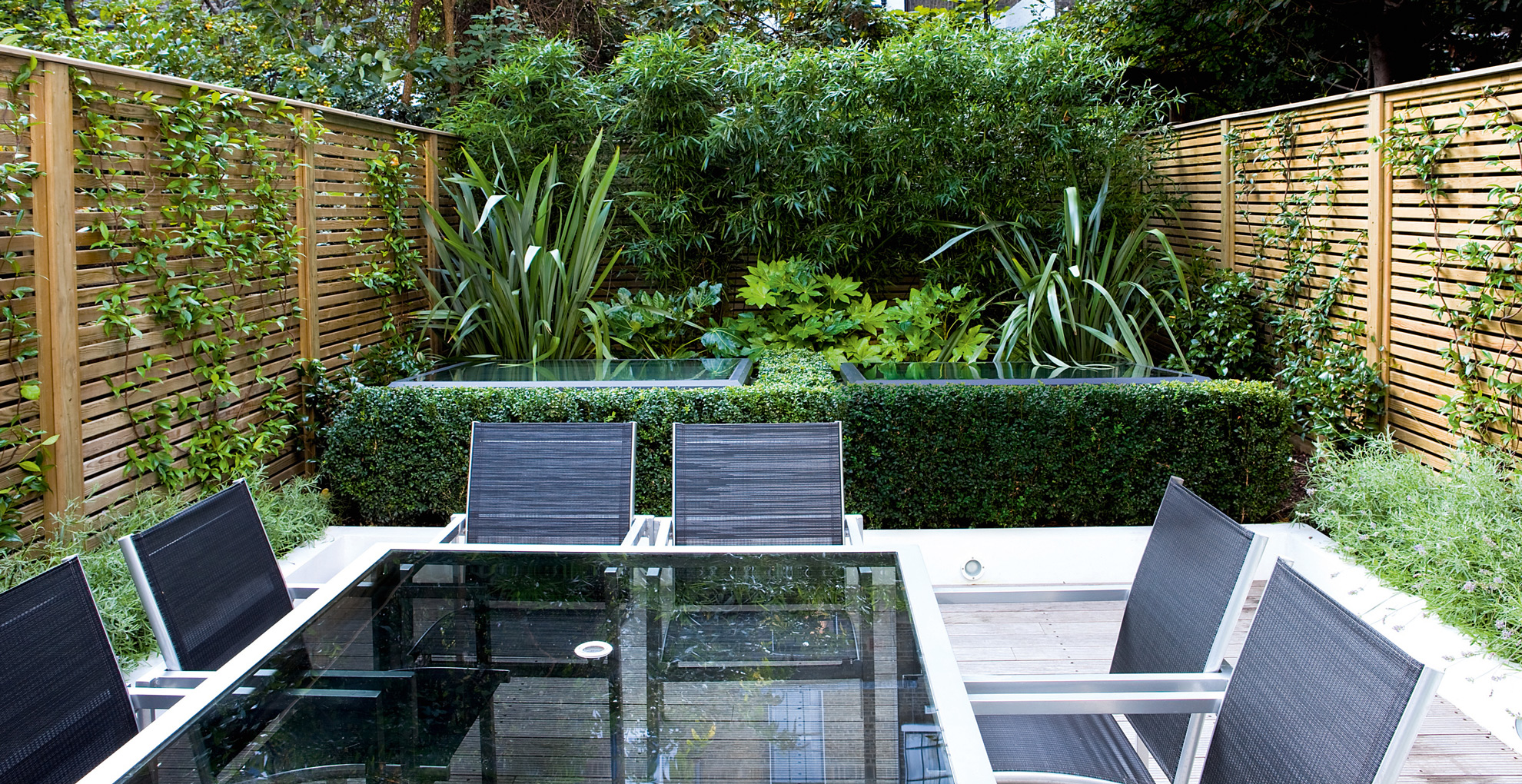
When it comes to planting in a small backyard vertical solutions are your friend. Using every inch of elevated space is the best way to maximize a small garden.
"Vertical gardening is a fantastic way to make use of small spaces," agrees Ben. "Invest in some trellises or wire mesh and grow climbing plants that will add height and interest to your garden."
Ben's savvy small garden tip is: "Try to keep the planting flat and flush with the walls to save space. User planters containing varieties that grow upwards in straight vertical lines such as bamboo."
"Our favorite tall garden plant varieties include Delphinium and Joe Pye Weed," says Lotte Berendsen, a resident botanist at plant finding app Plantin. "If your climate allows, you can place tropical plants such as Bird of Paradise or Palms to add vertical elements to your garden."
7. Keep furnishings to scale
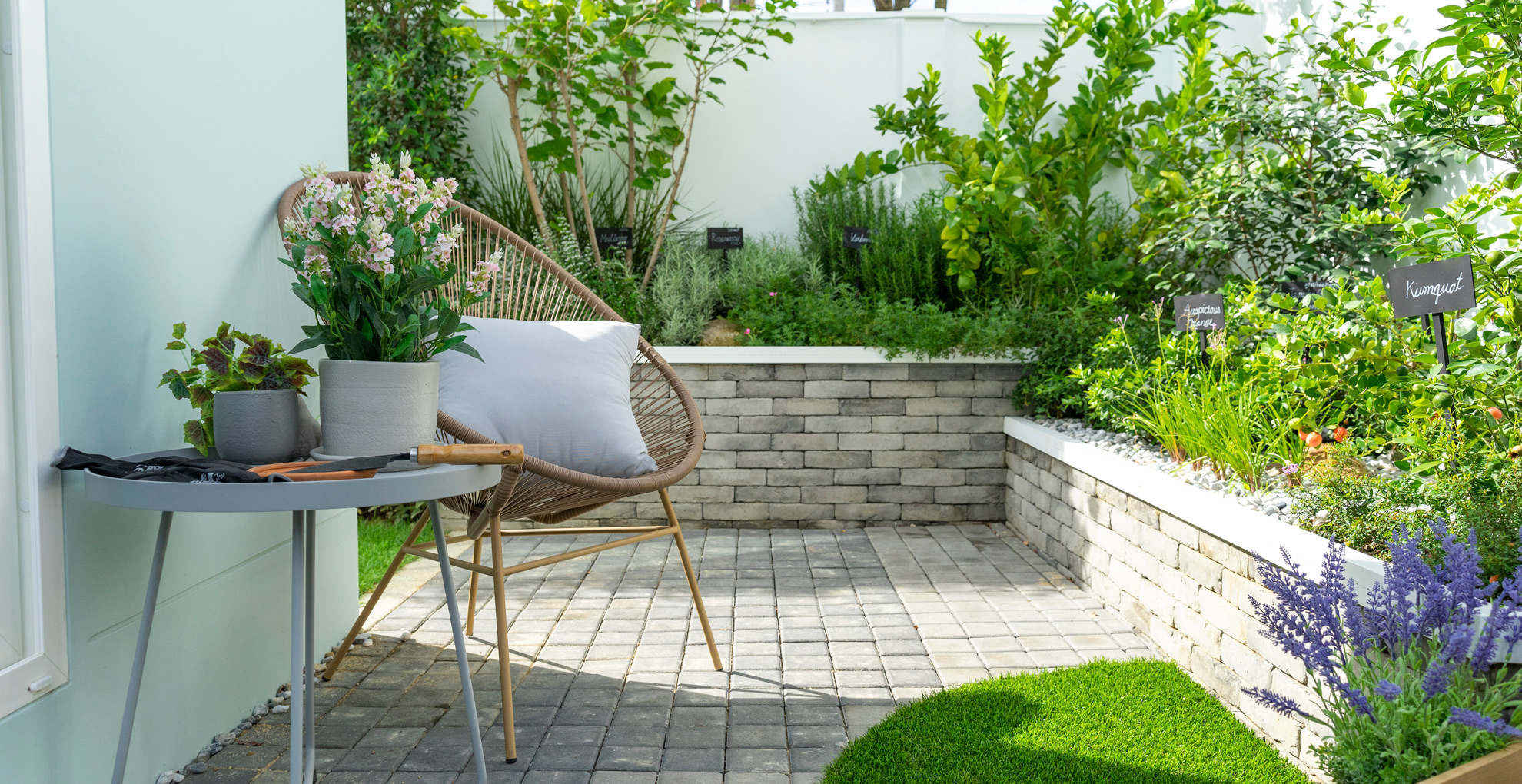
When choosing your best outdoor furniture it's best to have a sense of space in mind. It can be tempting to go big for maximum comfort but this could be jeopardizing the small garden space on offer.
"Keep features such as furniture in scale with the space," advises Janet. "Substitute a larger dining set for a smaller bistro set."
8. Maximize planting potential using pots
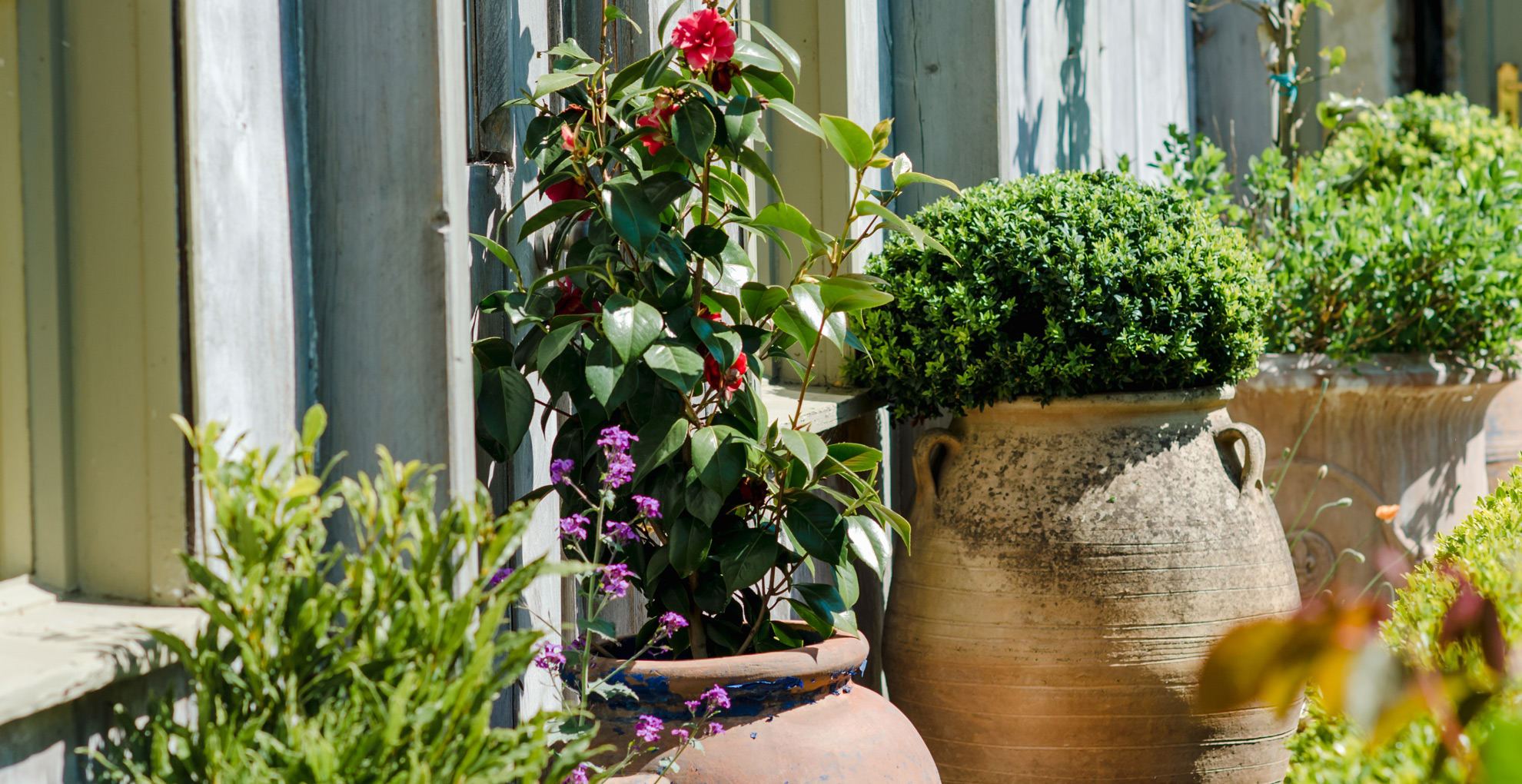
Don't let a lack of flower beds limit your planting potential, simply use potted plants instead. "Just because you don’t have space for large flower beds and vegetable gardens doesn’t mean you can’t enjoy beautiful blooms and plants in your small garden," agrees Lotte.
Position said pots against fences and boundaries lines to use the vertical space to further unlock growing potential. "Another excellent way to grow plants from pots in a small garden is through vertical gardening – which is a great space-saving way to grow veggies and herbs at home."
9. Choose large pots over small
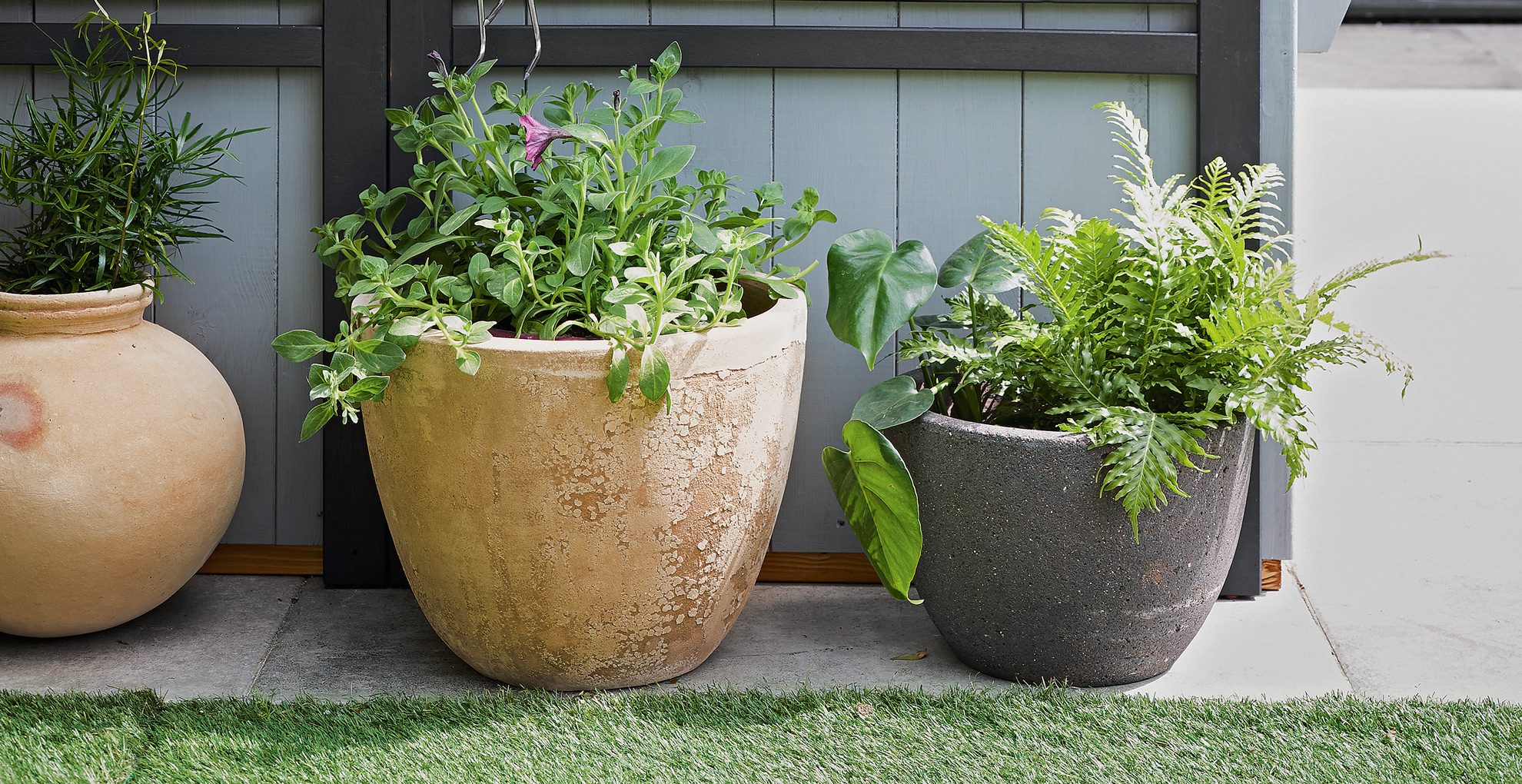
While instinctively you may lean towards using smaller pots in a small garden, our experts explain why it's actually more beneficial to seek larger solutions.
"A few larger containers will work better than a cluster of smaller pots, which can look cluttered,” says Sarah. And, as we know a cluttered garden makes a tiny space feel even smaller because you're drawing attention to the small footprint by way of overcrowding.
10. Soften the borders
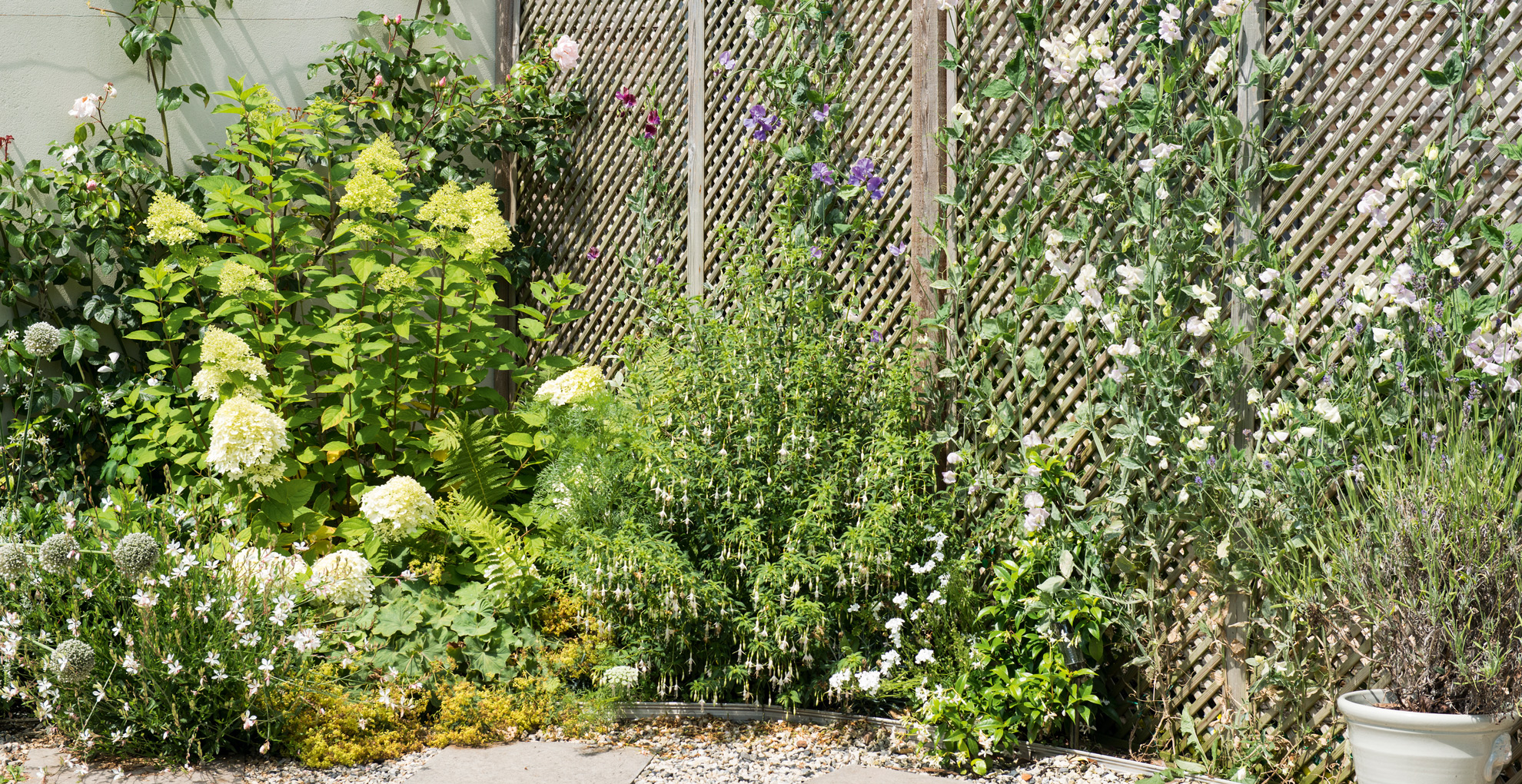
Create the illusion of infinite space by hiding the boundary lines – because there's nothing like a solid wall of fencing to highlight a confined, compact space. By adopting a softer approach to the edges of a small plot you can help to make it feel less restricted, plus you won't feel so boxed in while enjoying the outdoor environment.
"One of my favorite ways to make your garden look bigger is by simply hiding the garden's boundaries using flowers, plants, and shrubs," says Lotte. "A beautiful way to do this is by planting a wildflower garden surrounded by bushy, lush shrubs such as Rhododendrons."
11. Take a maximalist approach
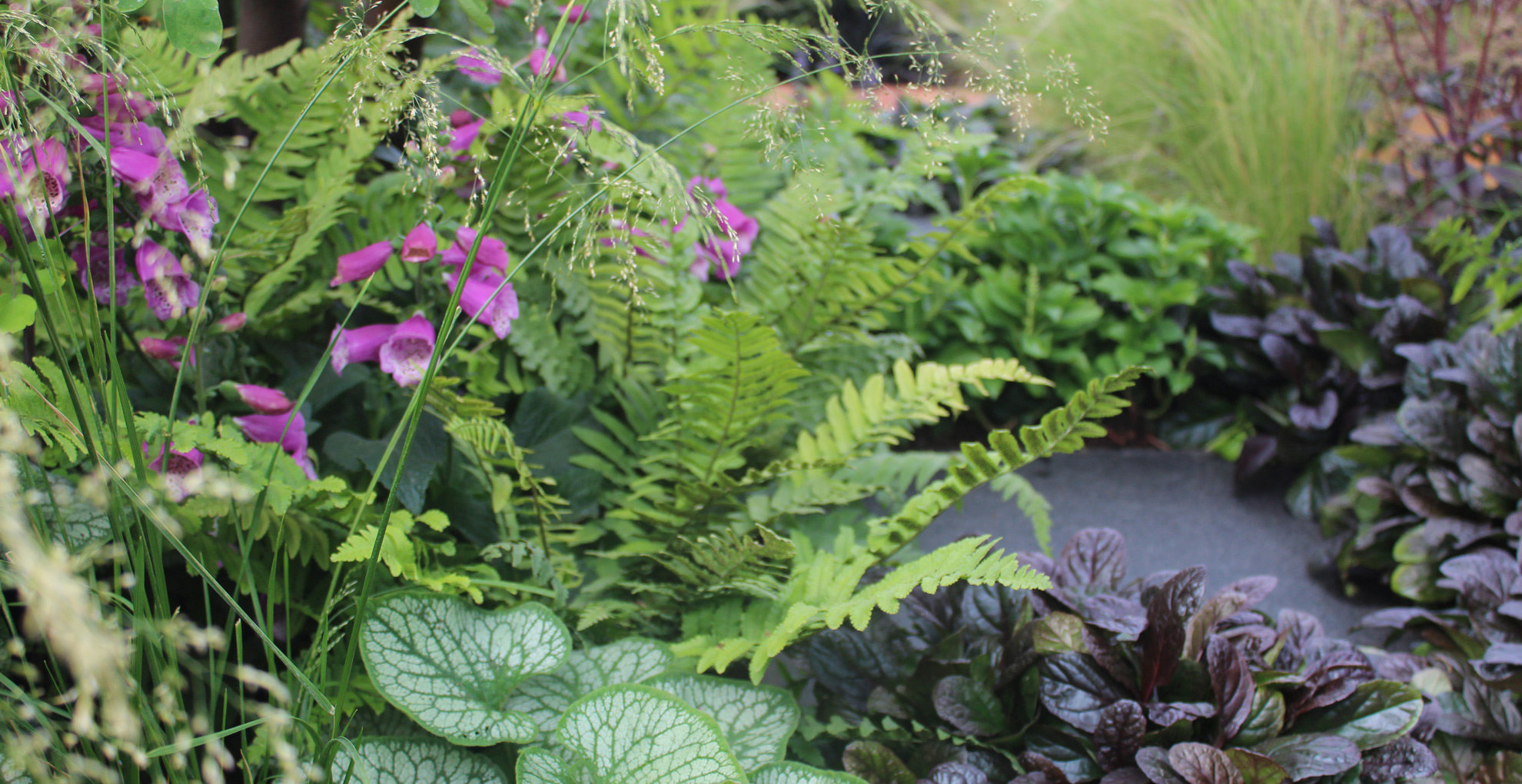
Garden design by Matthew Haddon at Haddon Studio
Similar to how small rooms happily welcome the maximalist interior design trend a small garden space can benefit from a more-is-more approach.
"Gardens are about the plants, so more plants can make a big difference even in a small courtyard," says Matthew Haddon, founder of landscape and garden designer Haddon Studio. "Also there is no room to hide in a small garden so the quality of finish is key for details - from paving to pots to the choice of plants."
"By maximizing interest within the garden you can also minimize the feeling of being overlooked unless you are lucky enough to be able to borrow views from outside your garden. Although you often need to consider increasing the feel of privacy perhaps with pleached trees, climbers, or higher fences."
12. Go without grass
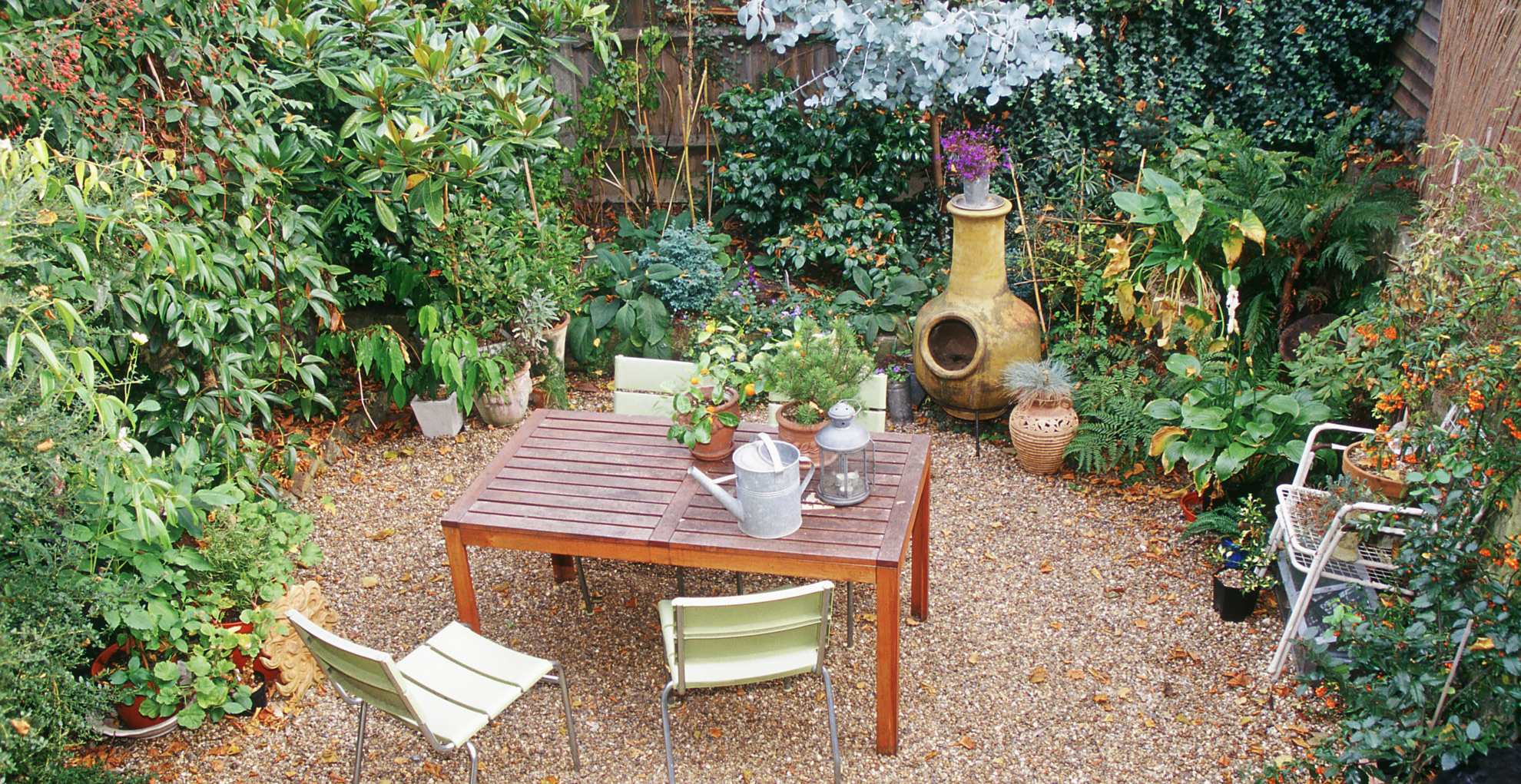
There's no denying that a plot of luscious grass is dreamy for most garden spaces but if you are restricted by size to provide adequate maintenance, considering how often you should mow a lawn, it might not always be the best solution.
"Don’t always assume that you need a lawn," says Eliza Gray, landscape designer and founder of Eliza Gray Gardens. "These are amazingly high maintenance if you have a smaller space."
"While I would not necessarily suggest fake grass for environmental reasons, alternatives such as ground cover planting, wildflower areas, or permeable gravel can create a garden that is attractive to humans and wildlife, without the need for lawn-mower storage.

Tamara is a highly experienced homes and interiors journalist with a career spanning over 22 years. Now the Lifestyle Editor of womanandhome.com, she previously spent 18 years working with the style teams at Country Homes & Interiors and Ideal Home. With these award-winning interior teams, she gained a wealth of knowledge and honed her skills and passion for styling and writing about every aspect of lifestyle and interiors.
A true homes and interiors expert, Tamara has been an ambassador for leading interior brands on multiple occasions, including appearing on Matalan’s The Show and presenting at top interior trend forecasting events such as the Autumn Fair and Spring Fair.
-
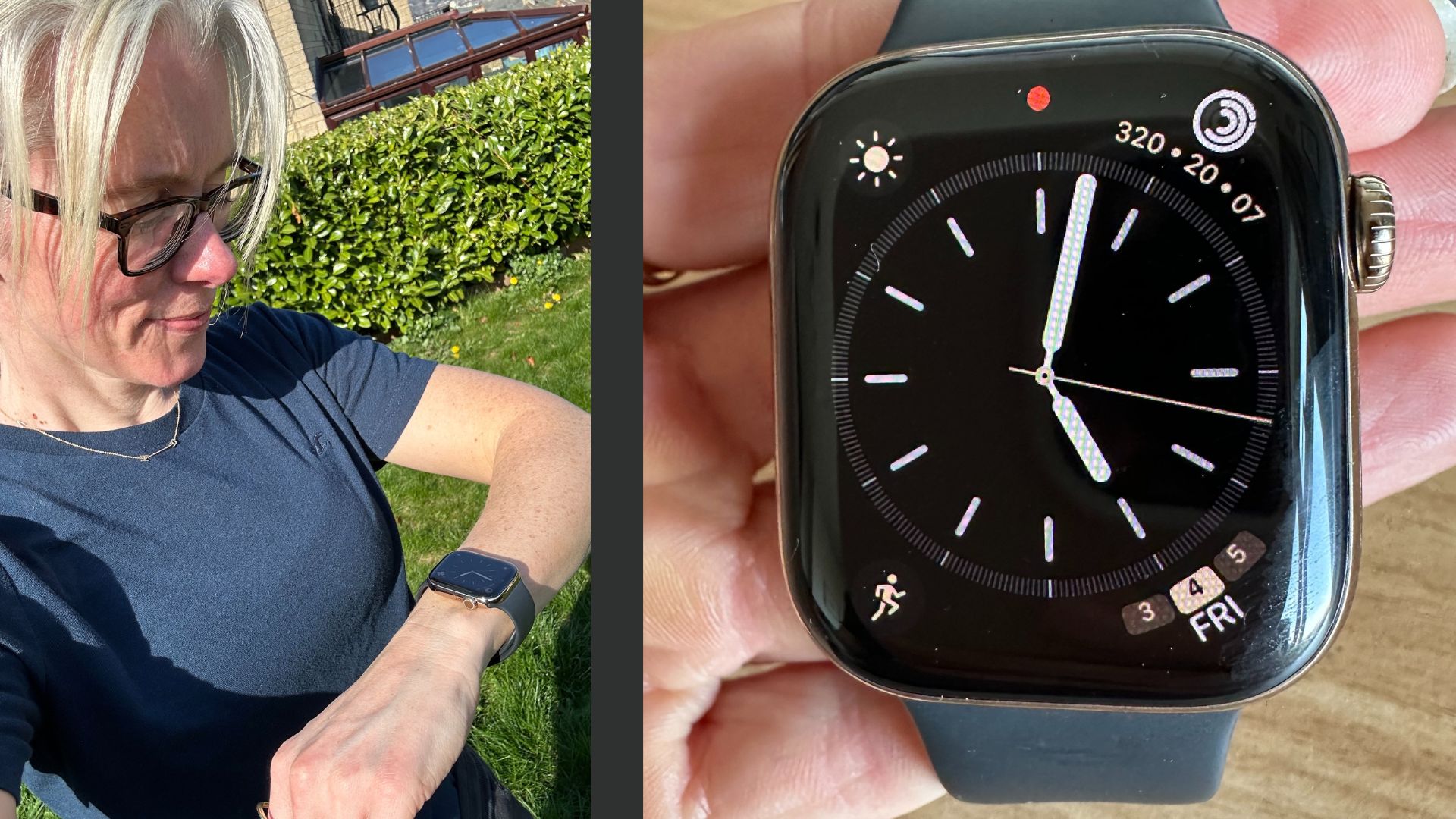 Apple Watch Series 10 review: Forget fitness, this watch helps carry my mental load like nothing else
Apple Watch Series 10 review: Forget fitness, this watch helps carry my mental load like nothing elseThere are so many ways the Apple Watch Series 10 adds value to everyday life, I just wish the battery lasted a bit longer
By Kerrie Hughes Published
-
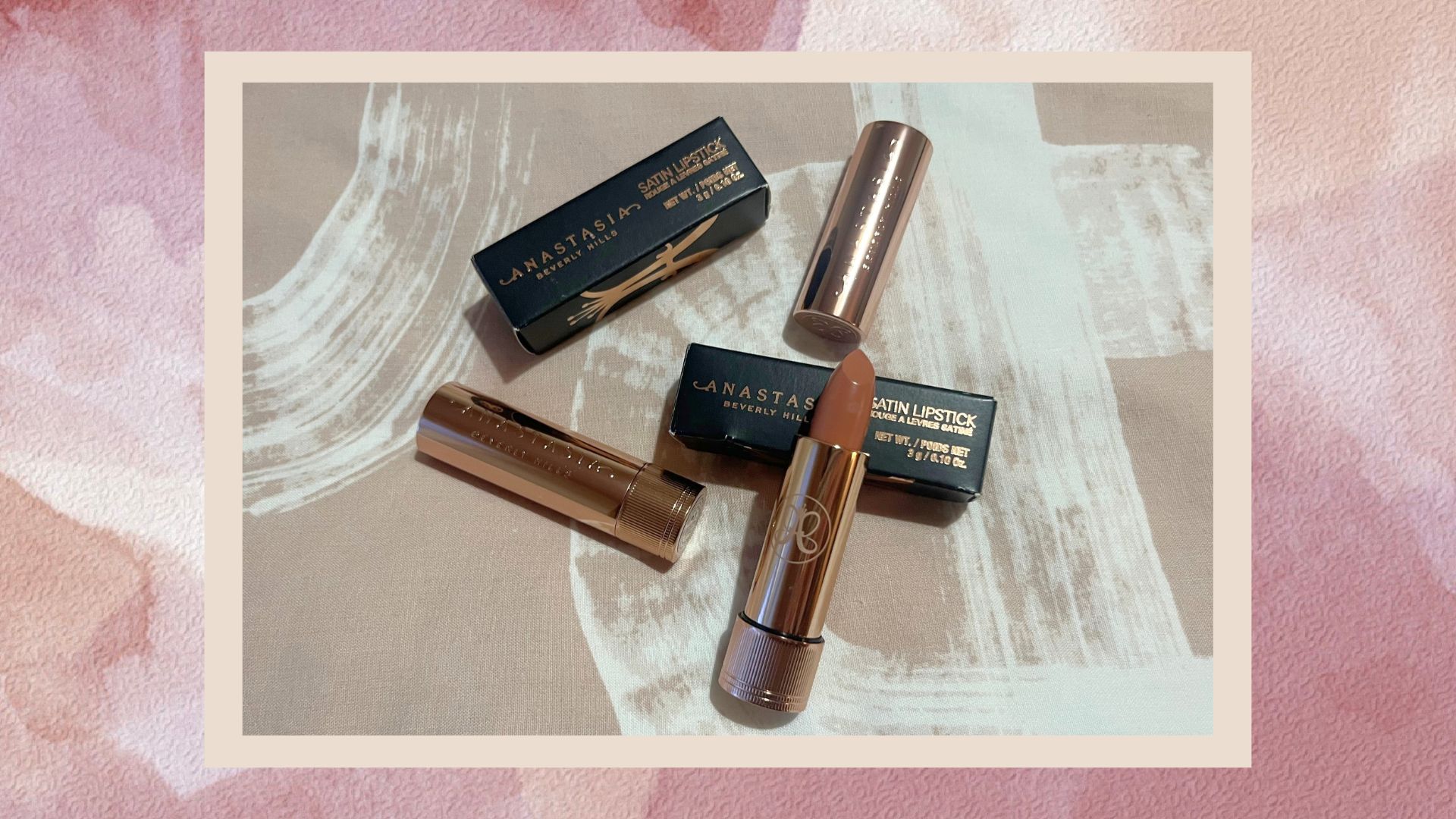 Whenever I wear this lipstick, I'm asked what shade it is - I think I've found the perfect nude
Whenever I wear this lipstick, I'm asked what shade it is - I think I've found the perfect nudeAfter years of searching, our beauty writer reveals the butter-soft pink-brown lipstick she wears every single day
By Annie Milroy Published